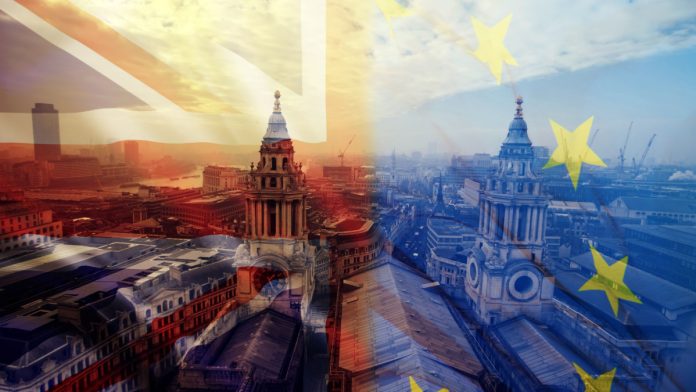Just over four years after the UK left the EU and eight years after the nationwide vote deciding the country’s fate, Brexit remains a difficult topic for British SMEs.
According to the 2024 Trading Places report from Bibby Foreign Exchange (BFX), more than 55% of UK SMEs see ongoing issues as a result of the country’s exit from the EU as a ‘significant challenge’.
It is important to note, however, that inflation remained the biggest cause for concern for UK businesses, unsurprising given how much the topic has dominated the financial headlines this year.
Chancellor of the Exchequer, Jeremy Hunt, asserted to the press earlier this month that the Conservative government’s plan is ‘working and we should stick to it’ amid alarm bells ringing after inflation rose to 4% – for context, the Bank of England’s ideal target for inflation is 2%.
Nonetheless, in an era of international interconnectedness and cross-border commerce, business barriers as a result of Brexit are a continuing cause of sleepless nights for UK SMEs.
Michael McGowan, BFX Managing Director, said: “Four years on, the Brexit burden is growing, not shrinking, and this is stifling the growth of thousands of UK exporters and importers who also face a myriad of supply-chain Issues as a result of conflicts in Europe and the Middle East. Combined, such geopolitical events are placing further pressure on those trading overseas.”
BFX research shows that business concerns about Brexit have been circulating since the immediate aftermath of the referendum.
In fact, those who remember and may have voted in the nationwide ballot will likely remember that concerns about Brexit’s impact on the UK’s ability to conduct commerce with its European neighbours were one of the key arguments of the Remain campaign.
Back in 2017, BFX found that 41% of importers and 29% of exporters said Brexit was having a negative impact on business. This figure has risen in the eight years since to 62% in the case of importers and 63% in the case of exporters, whilst 49% of SMEs across the board report that trading costs with customers and suppliers in the EU are up.
Lastly, the issue of tariffs is also, again unsurprisingly, a thorn in the side of many UK SMEs, with 40% citing tariffs and customs and trade barriers which sprang up once Britain left the political and economic bloc as a key issue.
In the eyes of most politicians, with the exception of some passionately pro-European ones – mostly found in the Liberal Democrats but also in clusters in both Labour and Conservative – Brexit is now a done deal, for better or worse. For some SMEs, however, a return to the EU would be an ideal outcome, for 20% of those surveyed, to be exact.
These concerns around tariffs echo the findings of a Currencycloud survey earlier this month, which found that 31% of 29% of SMES cited tariffs as a barrier and 31% were concerned about finding overseas customers.
Finding ways to efficiently conduct international commerce and trade, particularly with the EU which even after Brexit remains the UK’s biggest trading partner, is a continuing challenge for UK SMEs and for the government, which wants to foster a thriving and growing financial services and fintech sector in the country.
Meanwhile, for both consumers and merchants, continuing living costs and day-to-day expenses remain a burden, hence why on the fourth anniversary of Brexit inflation still looms larger in the minds of most SMEs.
Alastair Douglas, CEO of TotallyMoney, commented: “Millions of people are unable to warm their homes, fill their fridges, or keep up with credit commitments. And with government support lacking, people are turning to credit to plug the gap and cover the essentials.
“The worry is that as demand is growing, so is caution from the banks. They’re restricting who they’re lending to, creating a credit crunch for would-be borrowers. As a result, we’ve seen a boom in unregulated Buy Now Pay later borrowing, and 2.6 million low income households have turned to high cost or illegal money lenders.
“And while inflation may have dropped from its 11.1% peak, it’s still double the Bank of England’s target. The cost of living isn’t getting any cheaper — it’s still on the rise — and without action, people will continue to struggle for years to come.”























